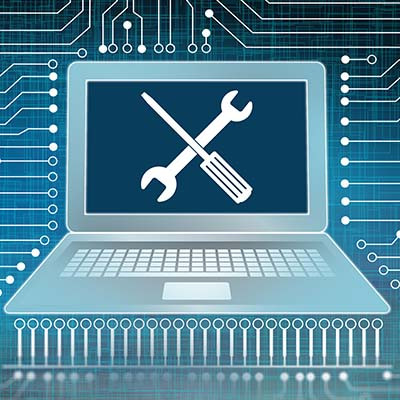SolutionOne Blog
Tip of the Week: Keep Your Computer Working Effectively with These 5 Tips
Computers allow businesses to do so much, but eventually a time comes to purchase new hardware. Thankfully, you can stave off this need pretty well by simply taking care of your existing technology. Here are some tips you can implement to make sure that your computer lasts as long as possible before it kicks the bucket.
#1 - Keep Your Hardware and Software Updated (All of It)
Some folks are using the same old tired technology that they were using a decade ago, and the reason they have been able to do so is because they take care of keeping all their hardware and software updated. Some users may have updated their computer from their old hard disk drive to a solid-state drive or added additional RAM, but for the most part, the big reason why their device is operationally sound is because they have kept updating software to keep up with the times. With the software as updated as possible, less strain is placed on the computing resources.
#2 - Keep Your Hardware Clean
It’s easy to think that buying a new computer will solve your problems when you don’t take care of your current technology, but know that you’ll just encounter the same problem when you don’t take care of the new technology, too. Computers are machines, after all, and they have a lot of intricate parts that require a clean environment. Naturally a computer will not work well if crumbs get in the keyboard or dust builds up inside, so make sure you take measures to periodically clean your PC so that it’s not a complete mess.
#3 - Buy Protection
Taking care of your computer’s physical wellbeing is incredibly important, especially for a laptop that is on the move all the time. Consider purchasing a nice padded carrying case that can keep your computer safe while in motion. For a desktop user, a surge protector is also a must, as it protects you from unexpected surges and provides even more utility thanks to the extra plugs. As for mobile devices, you have cases that can keep them dust and water-resistant.
#4 - Keep Your Antivirus Running
You should frequently run a virus scan on your device, even when you are away from it. There are countless issues that could occur with your device, and the best way to identify them is to run an antivirus scan on your device. With a centralized antivirus program on your network, you should be able to identify and remove malware on your endpoints.
#5 - Don’t Treat it Like a Light Switch
If you constantly turn your device on and off, you will run into problems with your components in the long term. While it might seem beneficial to save the electricity and conserve the battery life, ask yourself if it really saves so much that it is worth replacing your entire device in the near future. Naturally, the answer is no, so don’t treat your technology like it’s a light switch.
Hopefully you can put these tips into practice and preserve your technology a little bit longer. SolutionOne can also aid in this effort with our managed IT solutions. To learn more, reach out to us at (214) 299-8555.

Comments